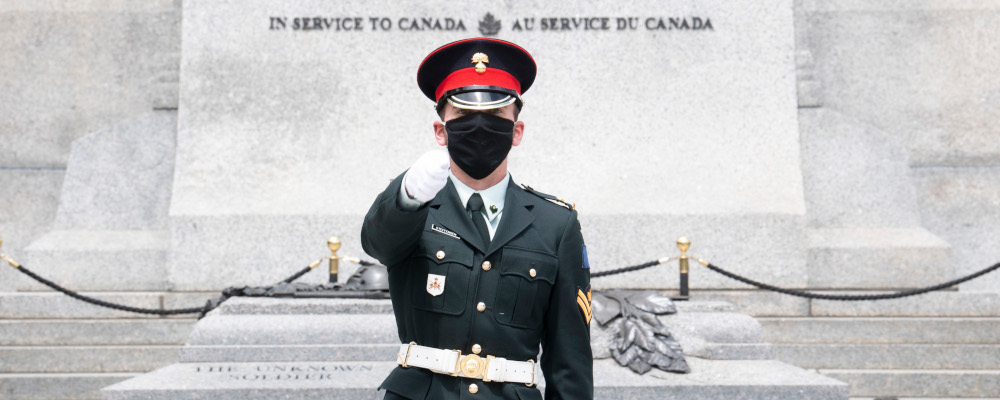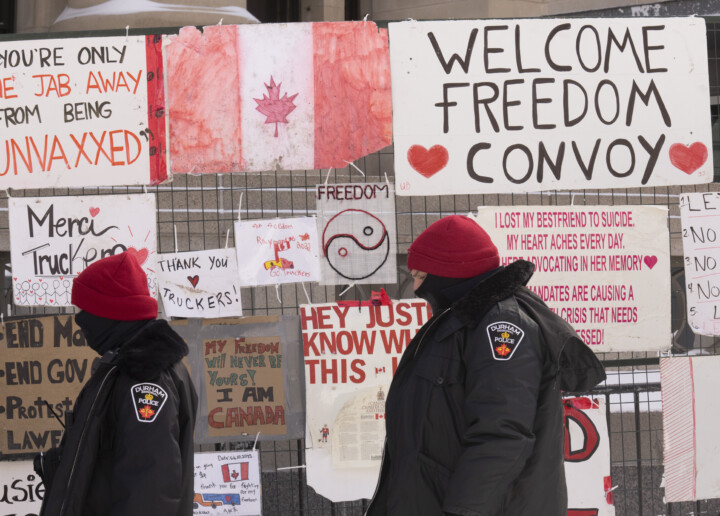When we’re talking about the Canadian military it begins and ends with how you pronounce Lieutenant. I doubt anyone has done a survey but my guess is a huge majority of Canadians would say Loo-tenant. But they’re wrong. In the Canadian Armed Forces, at least what remains, the word is Lef-tenant, as it is with all members of the British Commonwealth.
There may be several reasons for this state of affairs but here are two big ones. The first, and unquestionably the main culprit, is American influence. Indeed, when was the last time an American film about World War II recognized Canada’s contribution? Any American film that has anything to do with Canada, especially concerning things military, whitewashes us out of existence.
The 1963 classic The Great Escape about the legendary Allied escape from a German POW camp claimed to be based on a true story, but the truth involved no Americans. It involved Canadians, Brits, Aussies, and those of other Allied nations. However, the film depicts GI Joes Steve McQueen and James Garner as the real heroes in this event. More recently, the 2012 Oscar-winning Argo about the Iranian hostage crisis and rescue of American hostages in 1979 overplays the role of the CIA and vastly underplays that of Canada.On this day in 1980: The ‘Canadian Caper’ story behind Argo https://www.cbc.ca/arts/on-this-day-in-1980-the-canadian-caper-story-behind-argo-1.3420882
The second reason we get Lieutenant wrong is our own pig-headed complacency about the military which is largely due to a succession of federal governments that are anti-military in their ideology.
Such is the view of this layman with no military background. My father was born in 1919 which means he was 20 when the war broke out. He served in the Canadian Army, but never ventured abroad since he was stationed in Newfoundland and, for whatever the reason, related precious little to us about his experience. However, in my life I’ve had a few insights into the armed forces and think our neglect of them—and our defence—is criminal.
Let’s go back to the late 1970s. I was in corporate communications at IBM Canada and got sent to North Bay, Ontario to visit the most northern base of NORAD (North American Aerospace Defense Command).“The North American Aerospace Defense Command (NORAD) is a United States and Canada bi-national organization charged with the missions of aerospace warning, aerospace control and maritime warning for North America. Aerospace warning includes the detection, validation, and warning of attack against North America whether by aircraft, missiles, or space vehicles, through mutual support arrangements with other commands.” https://www.norad.mil/About-NORAD/ We were admitted through the biggest, thickest steel door I ever saw—think of something a subway train could fit through—only to witness later a simulated attack on North America from inside the command centre which to me resembled something out of Star Wars. What did this have to do with IBM? Everything up there was controlled by a System/360 computer which even then was archaic but still worked. It would be like having a car from the 1990s that you drive today.
But driving to the corner grocery and protecting North America from the enemy are two different things. Unfortunately, Canada treating its military as a necessary evil best kept to a minimum is the norm in this country.
Consider that four Canadian soldiers walking down Toronto’s Yonge Street would undoubtedly draw stares from a public weaned on mythology that portrays Canada as nothing more than a peacekeeper, and this in a world that became very dangerous with Russia’s invasion of Ukraine. The feds make grandiose statements about contributing to Ukraine’s war effort but the fact is we can’t contribute much more than a few popguns, such is the state of our armed forces.As Canada sends ‘junk’ to help war effort, Canadians in danger of losing interest in Ukraine fight https://nationalpost.com/opinion/john-ivison-as-canada-sends-junk-to-help-war-effort-canadians-in-danger-of-losing-interest-in-ukraine-fight
I once had a magazine assignment that was to involve a week of “basic training” at a Canadian Forces Base. Everything was set and then it all fell apart. I got on the phone and called a senior military officer to ask what happened only to be rebuked by the person designated as my contact. I still remember his words: “You have circumvented our network of command.”
This was a different world than I was used to living in the suburbs of a big city, and a few years later I got a bigger dose. As a newspaper columnist writing about the justice system, I was invited to do talks at the two Canadian Forces Bases in Lahr and Baden Baden in the former West Germany. I spoke to the military brass and at the high school where the children of military personnel attend, did interviews on their radio station, and enjoyed nightly dinners with the base commander. My wife accompanied me on that trip and was treated like royalty. We were their guests and even flew in military planes. We met generals and a 6’6” captain from London, Ontario was our official escort. Later he invited us to his wedding.
Perhaps the most notable memory of that trip was courtesy of Herbie, the native German who was our chauffeur. He was about fifty, and keep in mind we’re talking 1987 here which means when the war arrived Herbie had been a kid and almost certainly in the Hitler Youth. He was driving us—my wife and me—through this lovely little town in the Black Forest when we came to a stop sign. On the sidewalk beside our car was a group of scruffy-looking, long-haired youths. Herbie wasn’t impressed.
“Hitler did a lot of bad things but he wouldn’t put up with that,” he said.
I remember a conversation with the base commander about which towns in the area had supported the Nazis during the war and he named town after town after town. Pretty well the whole lot of them.
Herbie aside, my overall takeaway from this trip was that the military was separate and remote from Canadian life, and vice versa. My view was, and still is, that the public lives in a fairyland world full of pixie dust. Maybe Vladimir Putin has been a reality check. Let’s hope so because the state of our armed forces is sad.
Where it all began I’m not sure, but in 1968 the federal government merged the Royal Canadian Navy, Canadian Army, and Royal Canadian Air Force into the Canadian Armed Forces. There would be one uniform. There was a huge outcry in many circles but over time many elements of that unification were reversed, including the distinct uniforms of each branch which were brought back by the government of Brian Mulroney. Then, in 2011, it all went back to square one with the Royal Canadian Air Force, Royal Canadian Navy, and Canadian Army.
Pierre Trudeau became Prime Minister in 1968. Like my father, he was born in 1919 but unlike my father, Trudeau managed to avoid military service. When young Canadian men were fighting and dying in Belgium and France he was traveling through places like the Soviet Union. Fast forward to 2007 when I secured a book endorsement from a retired Canadian general. He told me he had been part of Trudeau’s security detail when the PM had visited Canadian bases in West Germany back in 1971 and said Trudeau had an open disdain for the military.
You can’t pin the desecration of our military on one person but over the past 50 years and more it’s painfully clear the military has been off the radar in Ottawa. Pledges are made about meeting the NATO requirement of two percent of GDP but those pledges are always a lie no matter who forms government.What increased military spending may mean for Canada’s budget https://thehub.ca/2022-03-30/what-increased-military-spending-may-mean-for-canadas-budget/ The truth is we are a laggard and remain beholden to the United States to protect us. It’s like that old System/360 computer running things at the NORAD base in North Bay. If it ain’t broke don’t fix it. But our armed forces are broken and that is shameful.
Recommended for You
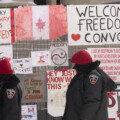
The mainstream media failed Canadians during the Freedom Convoy
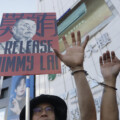
‘Speak to the injustice’: Why the Carney government must call out China’s brazen prosecution of Jimmy Lai
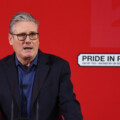
Oh, Mandy! Starmer’s naïveté comes back to bite him
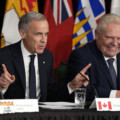
Ontario government workers get better pensions, earn 8 percent more, and retire earlier than private sector employees, report finds

